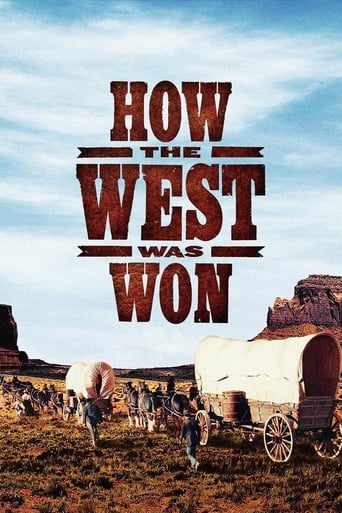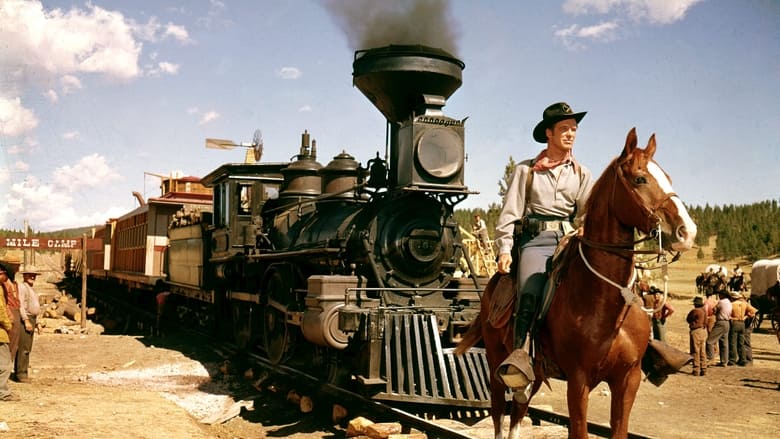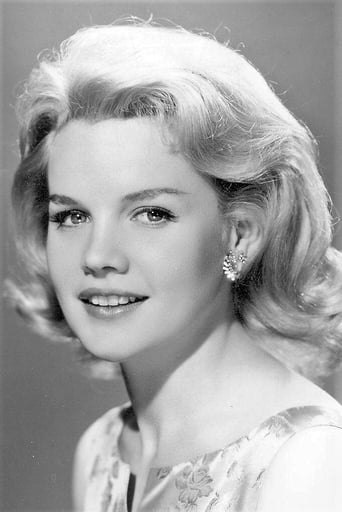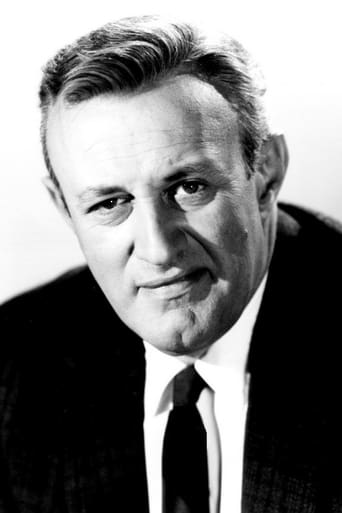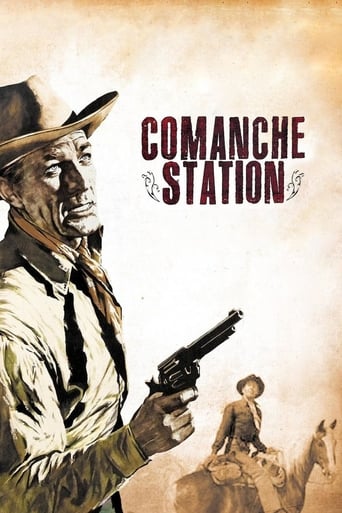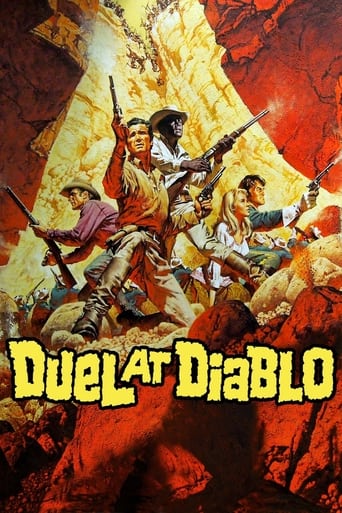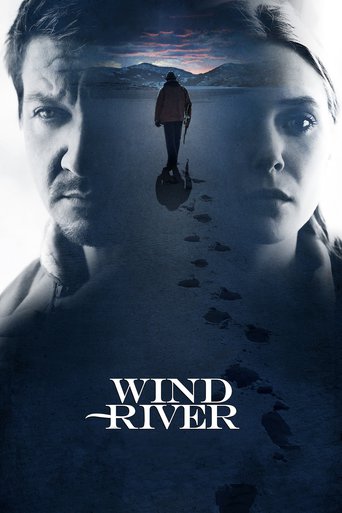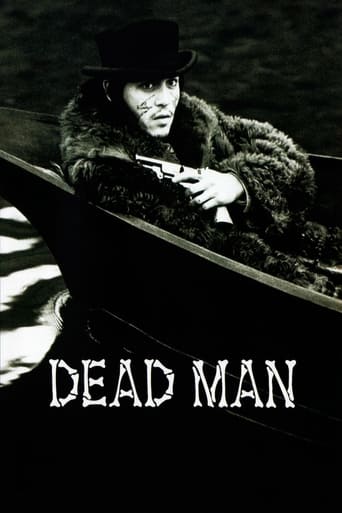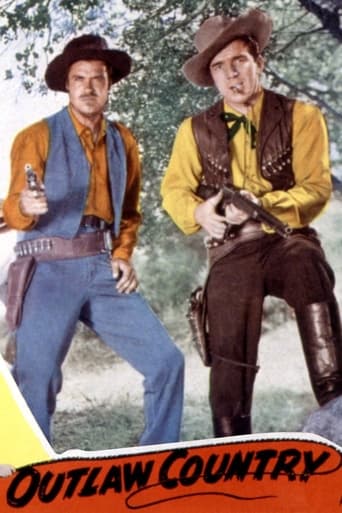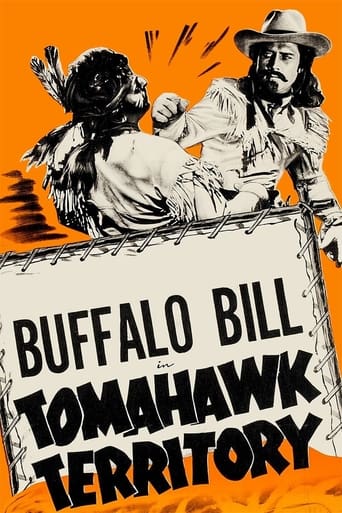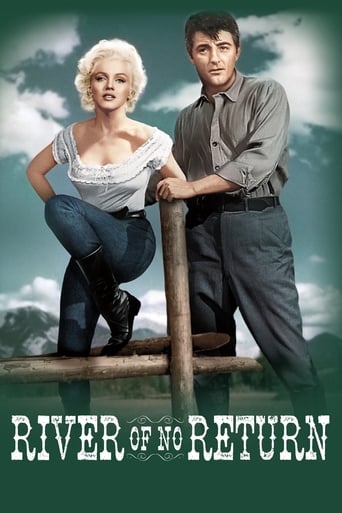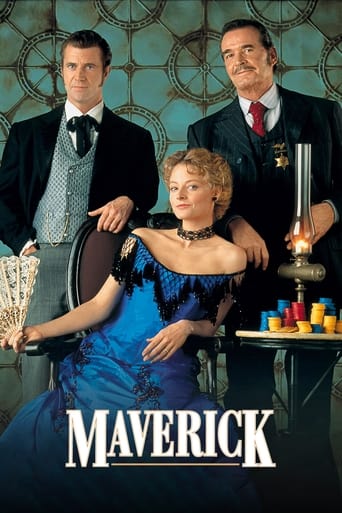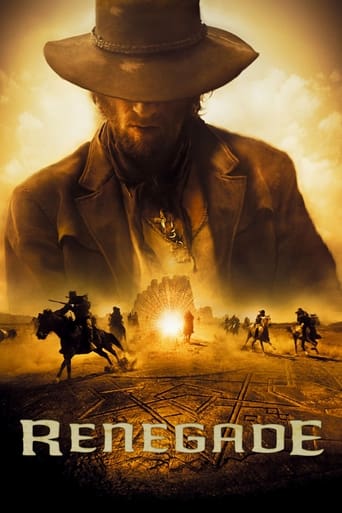How the West Was Won (1963)
The epic tale of the development of the American West from the 1830s through the Civil War to the end of the century, as seen through the eyes of one pioneer family.
Watch Trailer
Free Trial Channels
Cast


Similar titles
Reviews
Truly Dreadful Film
A Brilliant Conflict
Excellent characters with emotional depth. My wife, daughter and granddaughter all enjoyed it...and me, too! Very good movie! You won't be disappointed.
Through painfully honest and emotional moments, the movie becomes irresistibly relatable
Really, all these rave reviews?! Did I watch the same movie?Apparently this was a grand spectacle at the time it was released. Twenty Four amazing actors and the filming of all the broad vistas were meant for the audience to ooh and ahh...But the story, oh the story is a mish mosh of plot points that in the end don't add up. Yes the writers and directors manage to pull the film full circle revolving mostly around one family.But ugh. Parts of the film were downright painful. Three to four different directors does not make for the most cohesive film!
For someone who grew up reading "Lucky Luke" comic-books, I could always spot which film inspired a specific adventure, but in the case of "How the West Was Won", it's almost a kaleidoscope of all the Western archetypes the authors used to nourish their fertile imagination. Indeed, there's an adventure about pioneers, homesteaders, telegraphs, dance-halls, Pony Express, Indian Wars, desperadoes and so on and so forth. Indeed, you could become an expert about the Old West just by reading the entire collection of "Lucky Luke", a Belgian creation, and yeah, I mean it.But the merit of "Lucky Luke" is to have used the Western archetypes as backdrops to stories meant primarily to entertain, the trap where "How the West Was Won" has fallen is that the stories become the backdrop and it doesn't quite work. Sure, you expect a film to provide the elements of its genre, but the story is here to elevate it beyond the obligatory archetypes. There's a root within the requirements of the genre but the reach of a film should be more global, except for a documentary. Indeed, would I have enjoyed a documentary on the same subject better than the same thing being wrapped up into artificial stories? probably.There was a problem with the overall approach because the film had the epic-scale, the material, the budget and the potential to be one of the best documentaries of its era, it would have been an ahead of its time approach, but instead, it chose to be an ode to old-school Hollywood clichés, which makes it even more obsolete than the stuff it pays tribute to. A shame because as soon as the opening monologue starts with the reassuring voice of Spencer Tracy, and presents the vertiginous aerial shots of the Rocky Mountain worthy of a National Geography program, we feel we're onto something special, sure, there are a few lexical blows to political correctness mentioning how the land was taken from the primitive man, but at least it acknowledges that it was taken, and after all, in a film that makes such a glorious ode to "progress" and civilization, what did we expect?One of the film's most beautiful shots, if not the most, occurs right in the beginning when a fur-trapper is slowly paddling over a canal, giving us enough time to admire how the mountains in the landscape are beautifully reflected in the river. The film was known for having been shot in Cinerama, a process that needed the used of three cameras to produce a sort of king-size image, in reality the superposition of three different shots with various tricks used to dissimulate the intersections but the result could be spectacular, as it really gave you the "big picture", pun intended. In that magnificent image of the fur-trapper, you forget that you're actually watching James Stewart. Which is the point of a good film, forget about the cast, just enjoy it.The problem is this feeling doesn't last, and the obsession with reuniting all the Hollywood stars in that one big, epic scale undermines the immersion into the story. To a certain degree, you're busy trying to spot the actors than what their characters say or do. You name them, they're all here, as a matter of fact, it would be easier to tell you who is not in this picture. This confines to pure contrivance and affects the enjoyment. By choosing to focus on one family saga whose center of gravity is Debbie Reynolds who starts as the free-spirited daughter of Puritan pioneers, then a dance-hall performer, then the wife of a gambler, the film kind of loses that epic flavor and the whole Cinerama that had a point in the earlier scenes becomes a shortcoming rather than a strength, because the actors had to adapt to that new format, creating very awkward situations.But as a way to justify the heavy and expensive process that bothered all three directors involved in the film, Henry Hathaway, George Marshall and John Ford to name them, the film still offers all the big-scale archetypes of the Western genre, desperately trying to enrobe it with some 'history' flavor while there's more originality in five minutes of any classic Western than the three-hour platitudes and clichés we're forced to endure. And it's not the least to say that all the prestigious filmmakers involved in the project had quite an unpleasant experience and had to bother with three cameras for a movie whose whole publicity relied on the parade of stars it featured. Still, except for the big names like John Wayne and if it wasn't for Henry Fonda's voice, I would not have recognized her.Yet this film is a classic of the genre and even won the Best Screenplay, but it was made at a time where a young filmmaker named Sergio Leone would dust off the Technicolor heritage of old-school Western and gives it a new fresh of breath, using even Henry Fonda in a role worthier of his talent, even John Wayne would throw away his heroic monologues and play his Oscar-winning Rooster Cogburn in Hathaway's "True Grit", John Ford would have made another anti-Western with "Liberty Valance". "How the West Was Won" sounds more like a self-conscious, even pretentious, tribute to a genre that deserved just a good story or at least a simple documentary.No offense, but why go to such extents to only make the Civil War less significant than Debbie Reynolds' story, and have that ridiculous shootout climax? The West deserved better and the film isn't even enjoyable as a guilty pleasure. It even believes it's so great it had to be made even longer with the usual 'preludes' and 'interludes' as if it was the equivalent of "Gone With the Wind" and "Lawrence of Arabia". Well, the only spot it deserves among these masterpieces is in AFI's Top 25 Scores, the music is the only classic thing about it.
A family saga covering several decades of Westward expansion in the nineteenth century -- including the Gold Rush, the Civil War, and the building of the railroads.This may be the western for those who do not like westerns. Although I could have done without the overture and intermission (which would cut off ten minutes), the rest is excellent and has more big name stars than can be counted on two hands. For those who love westerns, we have John Wayne (and Lee Van Cleef), and for everyone else we have Jimmy Stewart, Gregory Peck and more...I loved the historical nature of this. It was sort of like the old west version of "Centennial". And the connection to modern Los Angeles was a tad hokey, but at the same time had a good bit of truth to it... a mere 100 years before this film was made, Hollywood was wilderness.
Turbulent and mighty story about a family saga set against the background of wars and historical deeds ; covering several decades of Westward expansion in the nineteenth century--including the Gold Rush , the Civil War, , Pony Express , Telegraph , confrontation between cattlemen and homesteaders . And of course , the building of the railroads and career between Union Pacific and Central Pacific to arrive in Promontory Point ; among other epic events . As a family of Western settlers from the 1830s to the 1880s , beginning with their voyage on The Eerie Canal and going on to encompass a Civil War battle and other happenings .The picture gets great action , expansive Western settings , shootouts , love stories , it is quite entertaining and there some some scenes still rate with the best of the West , including marvelous moments along the way . It efficiently describes an attractive panoramic view of the American Western focusing on the tribulations , trials and travels of three generations of a family . It's a big budget film with good actors , technicians, production values and pleasing results . Awesome as well as spectacular scenes such as an exciting white-water rafting sequence , a train robbery , a thundering buffalo stampede and Indian attacks . The Civil War is the shortest part and the weakest including a brief acting by John Wayne as General Sheridan and Harry Morgan as General Ulysses S Grant . Particularly supreme for its all-star cast list with some actors epitomising the spirit of the early West , at least as Hollywood saw it , including a Mountain man as James Stewart , a rogue card player , Gregory Peck , and Debbie Reynolds is notable here as a gorgeous dancer seeking fame and fortune . Not many of the players have a chance to register as a bearded Henry Fonda as a scout , Walter Brennan , Lee Van Cleef , Agnes Moorehead , Ken Curtis , Raymond Massey as Abraham Lincoln , Agnes Moorehead , Thelma Ritter , Mickey Shaughnessy , Russ Tamblyn and an interminable list ,Impressive cinematography filmed in Cinerama, and photographed in splendorous Metrocolor , though it loses much of its breathtaking visual impact on TV but otherwise holds up pretty well . All four cinematographers were Oscar-winners such as William H. Daniels , Milton R. Krasner , Milton Krasner , Charles Lang Jr and Joseph LaShelle . Rousing musical score by the classical Alfred Newman , including an immortal leitmotif . The motion picture was spectacularly directed by three veteran filmmakers , they were enlisted by producer Bernard Smith to handle the multi-part frontier stories relating exciting exploits of an ordinary family . Of the five segments, Henry Hathaway directed "The Rivers", "The Plains" and "The Outlaws", John Ford directed "The Civil War" and George Marshall did "The Railroad". Some uncredited work was done by Richard Thorpe. The picture won Oscar 63 to Film editing , Sound , Story and Screenplay . Rating : Extraordinary film , essential and indispensable watching . It's a magnificent example of the kind of old-fashioned blockbuster just don't make anymore .

